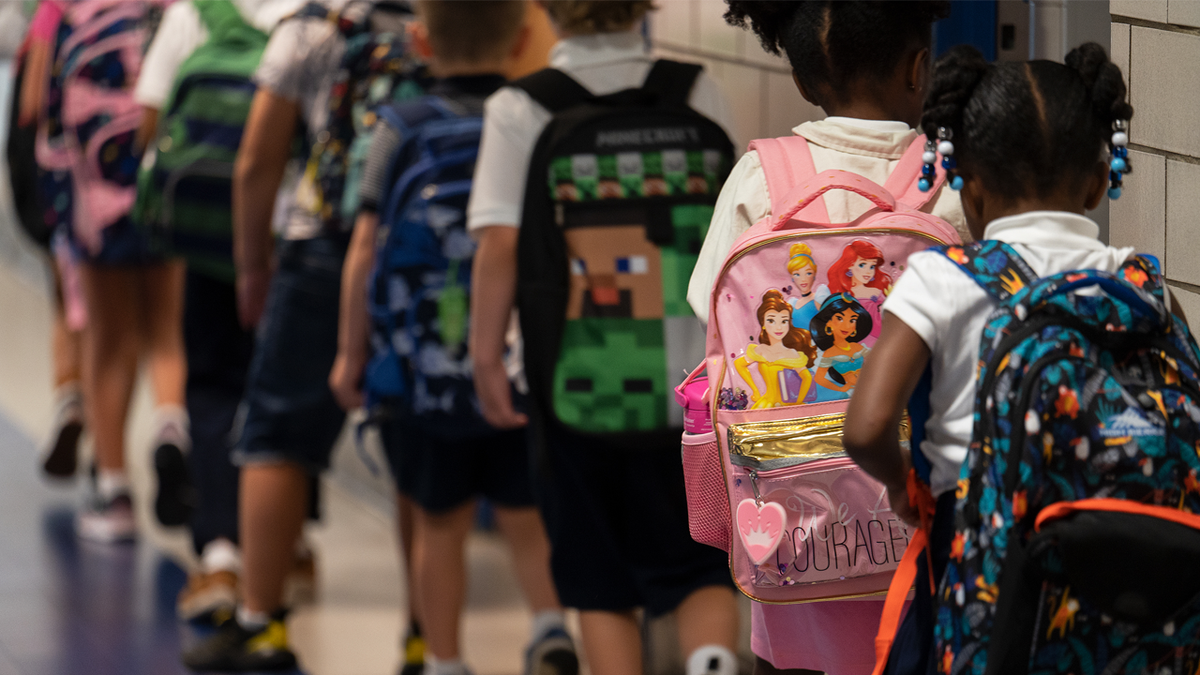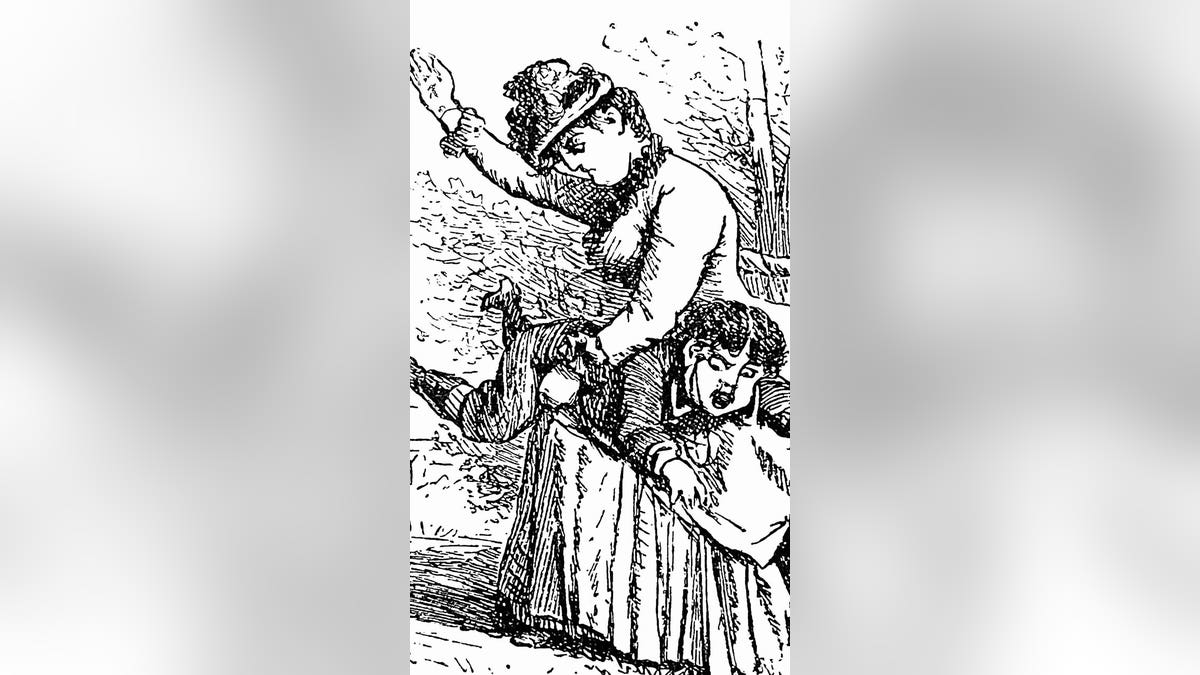Missouri school district reinstates spanking
'The Five' co-hosts discuss the Cassville School District in Missouri announcing it will reinstate spanking in school, only as a last resort and with parent permission.
The old adage, "Spare the rod and spoil the child," may seem outdated today, but spanking is still a method of discipline used by many parents, experts say.
A recent study conducted by Old Dominion University in Virginia suggests that spanking a child may have the opposite behavioral effect that parents desire, while also lowering the "social competency" of a child.
The study, authored by Dr. Jeehye Kang, assistant professor of sociology and criminal justice at Old Dominion University in Norfolk, was published in the October 2022 edition of the journal, "Child Abuse & Neglect."
AS EMERGENCY ROOMS SEE MORE OF AMERICA'S MENTALLY ILL KIDS, NEW STUDY PINPOINTS ISSUES
In the study, Kang examined data from the Early Childhood Longitudinal Study, Kindergarten Class of 2010-2011, a study of children from across the United States who were enrolled in kindergarten in the fall of 2010.
Children in the study were tracked to elementary school for various social and educational outcomes, the website for the National Center for Education Statistics notes.

Spanking children is linked to a lower "social competency" later in their adolescence, said a study from Old Dominion University. (iStock)
Kang found that a "lifetime experience of spanking by age 5 was associated with higher externalizing behaviors at ages 6 and 7, and with lower self-control and interpersonal skills at age 6."
This was also true for five-year-olds who suffered "a recent incidence of spanking."
These children, too, had "higher externalizing behaviors, lower self-control and lower interpersonal skills at ages 6 and 7."
YOUTH OPIOID OVERDOSES ON THE RISE AS SCHOOLS STRUGGLE TO FIGHT THE EPIDEMIC
Kang also noted in the study, "Many parents use spanking due to a belief that it will reduce anti-social behaviors and promote positive comportment in their children."
She added, however, that "parents should be aware that … spanking may hinder their children's development of self-control and interpersonal skills and increase externalizing behaviors, even if used infrequently."

Young students line up to enter their classrooms during a kindergarten orientation in Alexandria, Virginia, on August 19, 2022. Spanking may create a "nervous child," one New Hampshire man said. (Getty Images)
Fox News Digital reached out to Kang for comment.
One man in his 60s in Salem, New Hampshire, said spanking was "the norm" when he was a child.
"I can certainly say that spanking can create a nervous child," he told Fox News Digital. "And it perhaps even creates a sneakier child — one who makes doubly sure he doesn't get caught."
"Parenting that emphasizes education and praise for good behavior is the best way to promote positive child behavior."
An expert on child discipline told Fox News Digital that she was not surprised by the study's conclusions.
REDDIT MOM ADMITS TO FEELING ‘HUGELY TRIGGERED’ BY HER OWN CHILD AS SHE TRIES ‘GENTLE PARENTING’
Elizabeth Gershoff, professor of human development and family sciences at the University of Texas at Austin, said that her own research came to similar conclusions as Kang's.
There is consistency, she said, across "dozens of studies and several meta-analyses that have demonstrated that parents’ use of spanking does not lead to improvements in children’s behavior and instead leads to worsening child behavior over time."

Children exhibit better behavior when they're praised for things they do correctly, rather than when they're spanked when they make mistakes, an expert shared. (iStock)
Gershoff believes that parents hit their children out of a belief that "it works," as it gets a reaction from their child — or that they themselves were spanked when they were younger.
"It is still the case that most parents spank — they just do it less frequently than previous generations."
"However, those reactions do not mean that children have learned anything about how to change their behavior in the future. They only indicate that the child was hurt or afraid," she said.
KIDS BENEFIT FROM 'DITCHING THEIR DEVICES' AT HOME, URGES PARENTING EXPERT
Some parents may think that it's "necessary" to spank their child "either because they were spanked as a child or because they perceive their cultural group as supporting spanking," she continued.

Spanking as a form of punishment has long been accepted, although rates are declining, one expert told Fox News Digital. This 19th century drawing shows a woman spanking her child. (iStock)
Despite the fact that "the majority of parents spank their children at some point," Gershoff said the practice is "certainly decreasing over time."
"So, it is still the case that most parents spank — they just do it less frequently than previous generations," she said.
CLICK HERE TO SIGN UP FOR OUR LIFESTYLE NEWSLETTER
As an alternative to spanking, Gershoff said parents should view mistakes a child makes as "opportunities to teach children about the effects their choices have on other people and to help them think of better ways of behaving in the future."

Some parents may think it's "necessary" to spank their child "either because they were spanked as a child or because they perceive their cultural group as supporting spanking." (Kat J. on Unsplash)
Children, like adults, "respond much better to being praised for things they do well than punished for things they don't do well," said Gershoff.
"Parenting that emphasizes education and praise for good behavior is the best way for promoting positive child behavior," she said.
CLICK HERE TO GET THE FOX NEWS APP
She also said that children who receive praise for certain actions are more likely to repeat those behaviors in the future.









































